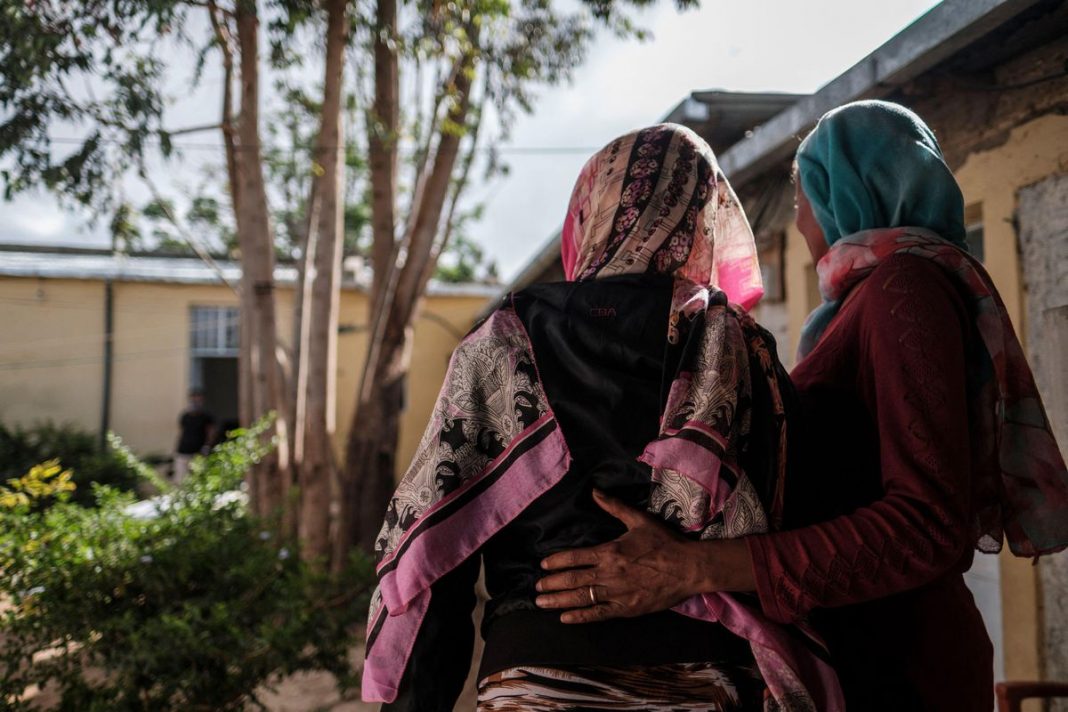June 19 marks the International Day for the Elimination of Sexual Violence in Conflict. The day was established by the U.N. General Assembly in 2015 to shed light on the issue of conflict-related sexual violence. The sort of violence it focuses on includes: “rape, sexual slavery, forced prostitution, forced pregnancy, forced abortion, enforced sterilization, forced marriage and any other form of sexual violence of comparable gravity perpetrated against women, men, girls or boys that is directly or indirectly linked (temporally, geographically or causally) to a conflict.” The date was deliberately chosen to commemorate UN Security Council Resolution 1820 (2008) which first recognized the use of sexual violence as a weapon of war, rather than an unintended consequence of war. The use of rape and sexual violence is a pandemic that is yet be addressed comprehensively. It continues to be used across several conflicts, and currently there is little hope that the crime will ever be addressed, let alone prevented.
It is a weapon of war that aims to hurt and humiliate, and much more than that.

Eyerusalem (L), 40, is held by an assistant at a safe house for survivors of sexual assault, in … [+]
AFP via Getty Images
In Ethiopia the use of rape and sexual violence against ethnic Tigrayan women is considered to be a genocidal method to being about the destruction of the community. There, reportedly, the perpetrators rape and gang rape the women, and then subsequently mutilate, having told their victims that “A Tigrayan womb should never give birth.”
In Cameroon’s Anglophone regions, women have been subjected to rape and sexual violence at the hands of armed separatists, military and civilians. The conflict, which has turned the region into a lawless one, is entering its fifth year. It leaves women unprotected and vulnerable to further such atrocities. Between February and December 2020, the U.N. documented 4,300 incidents of rape and sexual violence, and gender-based violence in the region, and between January and March 2021, nearly 500 cases of rape and sexual violence and 500 cases of gender-based violence.
In Syria, close to 3,000 Yazidi women and children continue be enslaved having been abducted by Daesh in August 2014 (from Sinjar, Iraq). If they are still alive, the Yazidi women and girls most likely continue to be subjected to rape and sexual and physical abuse. They need urgent rescue.
In Iraq and Myanmar, survivors of rape and sexual violence are left without adequate medical assistance and so continue to re-live their experiences from years ago.
This does not even take into consideration the use of rape and sexual violence outside of conflict areas. For example, in the case of Uyghur women in camps.
This pandemic does not have a miraculous jab or cure that can give hope to all those suffering that the future will be more prosperous. Despite several international legal duties, U.N. resolutions, voluntary pledges and so on, the use of these crimes continues. While considering current trends it is very difficult to eliminate the crime altogether, there are steps that can be taken to deter the perpetrators and to support the survivors.
Among others, the perpetrators must be brought to justice for their crimes. For example, despite the use of rape and sexual violence by Daesh, the perpetrators have been prosecuted predominately for terror related crimes, not rape and sexual violence (and neither for genocide that in the case of Yazidis would also incorporate rape and sexual violence). This sends a horrific message that the rape and sexual violence, the pain and suffering of the women and girls, is irrelevant. Understandably, there are issues with the existing laws that accommodate this approach. A society which is being told that marital rape is not a crime or that a wife can be disciplined will add to the ideologies that enable such atrocities against women and girls as those perpetrated against Yazidis and others. These need to be addressed to combat any perception that a woman can be subjected to any sort of violence by her husband.
Survivors of such atrocities must be provided with comprehensive assistance, whether for their physical or mental consequences of the rape and sexual violence, but also with assistance that will help them to move on and rebuild their lives crushed by the horrific experiences. No woman should walk alone in her suffering after the experience of rape and sexual violence.
The pandemic of rape and sexual violence cannot be accepted as given. It will not change over night. However, small steps can and must be taken now.




